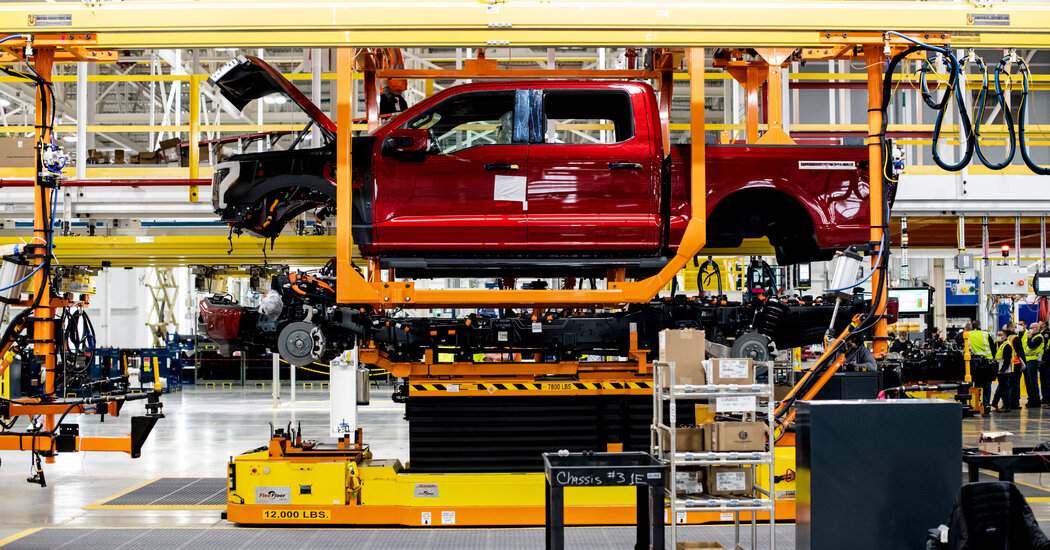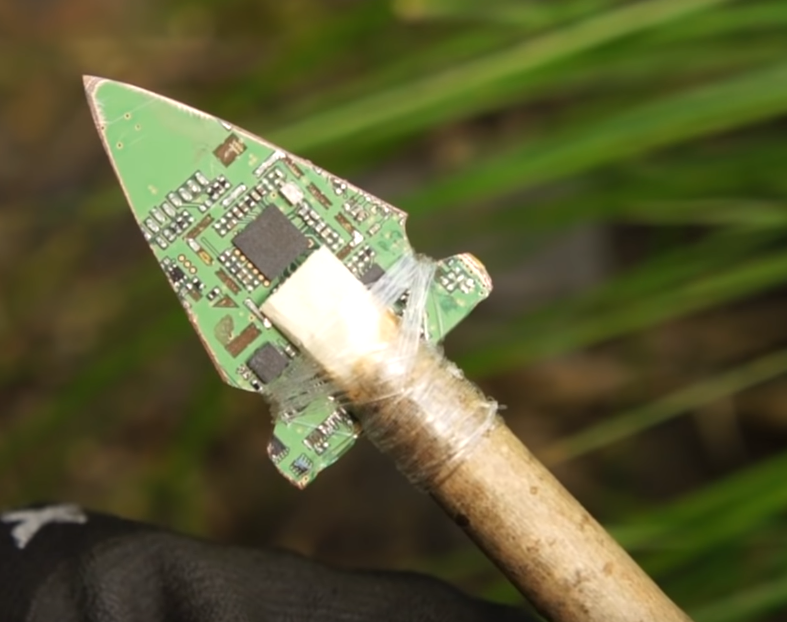Biden Administration Is Said to Slow Early Stage of Shift to Electric Cars::The change to planned rules was an election-year concession to labor unions and auto executives, according to people familiar with the plan.
Every damn time, ‘we just need a few more years, don’t force us yet though, we’re not ready…’ this forever planning stage is going to kill the planet before anyone is ready to act.
I’m sorry to be the bearer of bad news; we are not going to solve the planet with rampant consumerism
Given I’m not sure if you mean ‘the problem of rampant consumerism’ or ‘not solving the problem via rampent consumerism’ I’ll put up thoughts on either front.
On the first, a sizable part of that could be reduced by returning to a ‘buy it for life’ mindset in our society. I always like to use an example of Grandma’s kitchen table. Some people have the nice oak piece that’s been passed through a few generations, scuffed and stained maybe, but as solid as ever. Many now though obtain the cheapest particle-board garbage they can from the local Walmart and see it as normal to have to replace it after a couple years. That disposable lifestyle doesn’t help anyone other than the retailers and producers of cheap useless junk, nobody is going to be looking to build family memories at some glorified card table.
On the second, no, people buying for the sake of buying isn’t going to solve things, but at least we can make the choices available less destructive overall. In some cases 1000 small actions are just what’s needed of no one thing can do it all.
Yes to both and more.
We need laws to change the consumption and waste and subsequent damage problems. No more stuff because it’s built poorly, intentionally so you buy more stuff to only end up in the water, air, & ground.
Laws that reward repairs let alone legalise it. No more replacements.
Laws that change the grids energy production.
Laws that make corporations liable for damages on a global scale so the costs outweigh the risk and harm can be unwound with the cost recovered.
We dont need more stuff. We need EVs just to replace the current broken stuff and even then only if it cant be fixed (that means using carbon reduction like catalytic converters on steroids). Its to consider all the carbon creation chains for stuff. From digging it up, to its waste, and recycling.
P U B L I C T R A N S P O R T A T I O N
How about tell the dealerships and auto execs to fuck off? Up the subsidy that has not changed in 10 years.
Corporate Lobby go BRRRRRRRRRRR. also we need to over build charge stations to the point that some don’t get used because there are so many.
I don’t think I ever want an EV as a daily driver but I’d be down for a sport bike or dirt bike. Sustainable Battery disposal/recycling and figuring out some kind of trade in system for the 15k-20k lifespan of battery is something I’d like to see. There isn’t much of a resale market value for these EVs that is comparable to ICE vehicles either.
Not judging, just genuinely curious, why do you not want an EV as a daily driver?
This is actually one of the reasons why I push PHEV right now.
Note that PHEV has roughly 1/5th to 1/10th the battery size of a full EV. While every PHEV is different (do your research), the Prius Prime 2024 is perhaps the most practical. The new model has ~40ish miles of all electric range, and a button that can put you in 100% EV mode even at highway driving (at severe costs to your acceleration however: 0-60 in 11+ seconds in pure EV mode, while 6.5 seconds in EV+ICE mode). Still, the “pure EV” mode works on the Prius Prime, as crappy an experience as it is. This isn’t true for all cars (ex: Honda Accord 2014 PHEV switches to 100% ICE on highway driving).
In any case, the Prius Prime proves that a 13.6kW-hr battery pack is sufficient to cover a daily commute up to 44mi (EPA rating all-electric range). No need to buy a 5x larger pack like a Tesla (78kW-hr) or a 18x larger pack like a Hummer EV (260+ Kw-hr).
All PHEVs have an effective “generator” that converts gasoline into electric charge for your battery pack, and operates at far greater efficiencies than a regular car (gasoline -> motion is less consistent than gasoline -> tuned-generator -> electricity). Furthermore, most PHEVs (though not all) rely upon Atkinson cycle, meaning the engine is more efficient to begin with. (less fuel is injected per cycle, losing low-end torque. But the low-end torque is supplemented with EV engines so its a fine tradeoff for far greater efficiencies). So even in 100% gasoline mode, a PHEV offers substantial emissions savings off of a regular car.
Ex: Most cars waste their energy at idle. PHEVs instead run the generator to charge up the battery pack, so that your car has “effective work to do” rather than wasting fuel at a red-light. When the batteries are full, PHEVs and Hybrids can shutoff the engine entirely at each Red-light (0rpm electric engines are powerful enough to start the car / accelerate inside a city without any ICE assistance), so all the idle-fuel waste of a traditional ICE in stop-and-go traffic is eliminated. Etc. etc. etc.
I’m not in the know on this. How might one play devil’s advocate? Aren’t they still considered to be too expensive for most people? The electric grid ready?
They are too expensive. But only because auto manufacturers are only making midsized and larger suvs or luxury cars. The average price of an EV has dropped over 50% in China since 2015. That would have been tough for us to match, mostly because of batteries, but we could have made much more progress than we have.
The electric grid isn’t nearly as unprepared as people say. Sure, we need to build out more charging stations, but the grid as a whole far exceeds current needs. In fact, nationwide electrical usage is actually trending down in the US because of efficiency gains. Better building codes, heat pumps, LED lighting, if it uses electricity newer stuff is more efficient. If we had sold 8 times as many EVs in 2023 than we did, electricity usage would have stayed about flat.
You sound informed, more so than I. The heat pump thing confuses me, and I’ve seen it a lot lately.
I was under the impression that the vast majority of homes were using a heat pump system. Seems like a no-brainer? Is this not so?
EDIT: My HVAC is labelled a “heat pump” and no one around here had natural gas.




